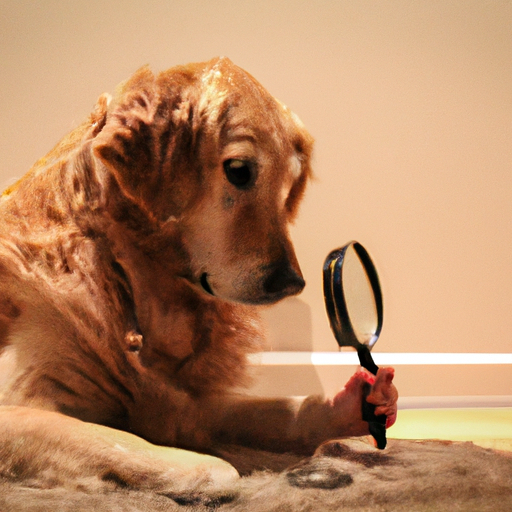As a dedicated pet parent, you’ve likely observed your dog shedding hair. It’s a natural phenomenon that occurs in all animals and humans. But what if you notice an unusual amount of hair loss in your dog? The reasons can be numerous, ranging from simple seasonal shedding to more serious health issues. Let’s dive in and understand why your canine friend might be losing hair.
1. Understanding Normal Hair Loss
Dogs naturally lose old or damaged hair by shedding. The amount and frequency of shedding depend on their health and breed type. Some breeds shed year-round, some only seasonally.
Here’s a table to give you an idea of dogs breeds and their shedding patterns:
| Dog Breed | Shedding Pattern |
|---|---|
| Labrador Retriever | Year-round |
| German Shepherd | Seasonal |
| Beagle | Year-round |
| Dalmatian | Seasonal |
| Bulldog | Minimal |
If you notice excessive shedding beyond these normal ranges, it might be time to consult a vet.
2. Health Conditions That Cause Hair Loss in Dogs
Sometimes, hair loss in dogs can be a symptom of an underlying health condition. Here are a few common ones:
- Allergies: Dogs can be allergic to certain foods, substances in their environment, or parasites like fleas or ticks.
- Infections or Infestations: Fungal or bacterial infections, as well as mites or fleas, can lead to hair loss.
- Endocrine Disorders: Conditions like hypothyroidism or Cushing’s disease often result in hair loss.
- Genetic Conditions: Some breeds are predisposed to specific skin conditions that cause hair loss.
If you notice bald patches, redness, inflammation, or abnormal shedding patterns, it’s best to consult with a vet immediately.
3. Taking Care of Your Dog’s Coat and Skin
A well-balanced diet and regular grooming can go a long way in maintaining your dog’s coat and skin health. Here are some tips:
- Brush Regularly: Brushing helps remove dead hair and distributes skin oils, keeping the coat healthy.
- Bathe Your Dog: Use a gentle dog shampoo and bathe your dog regularly, but not too frequently, as it can dry out their skin.
- Provide a Balanced Diet: A diet rich in proteins, fats, and certain vitamins can help maintain a healthy coat and skin.
4. When to See a Vet
It’s important to consult your vet if you notice any of the following:
- Bald patches or thinning hair
- Redness, inflammation, or irritation on the skin
- Changes in behavior such as excessive scratching or licking
- Unexplained weight loss or other signs of illness
Your vet will conduct tests to diagnose the cause of hair loss and recommend appropriate treatment.
5. FAQs
Q: Is it normal for puppies to lose their hair?
A: Yes, puppies often lose their “puppy coat” and grow their adult coat, which can result in temporary hair loss.
Q: How can I reduce my dog’s shedding?
A: Regular brushing, a balanced diet, and ensuring your dog is free from parasites can help reduce shedding.
Q: Can stress cause hair loss in dogs?
A: Yes, just like humans, stress can lead to hair loss in dogs. If you suspect your dog is stressed, it’s best to consult with a vet.
Remember, you know your dog best. If you notice any changes in their hair or overall health, don’t hesitate to seek professional help. After all, a healthy dog is a happy dog.



